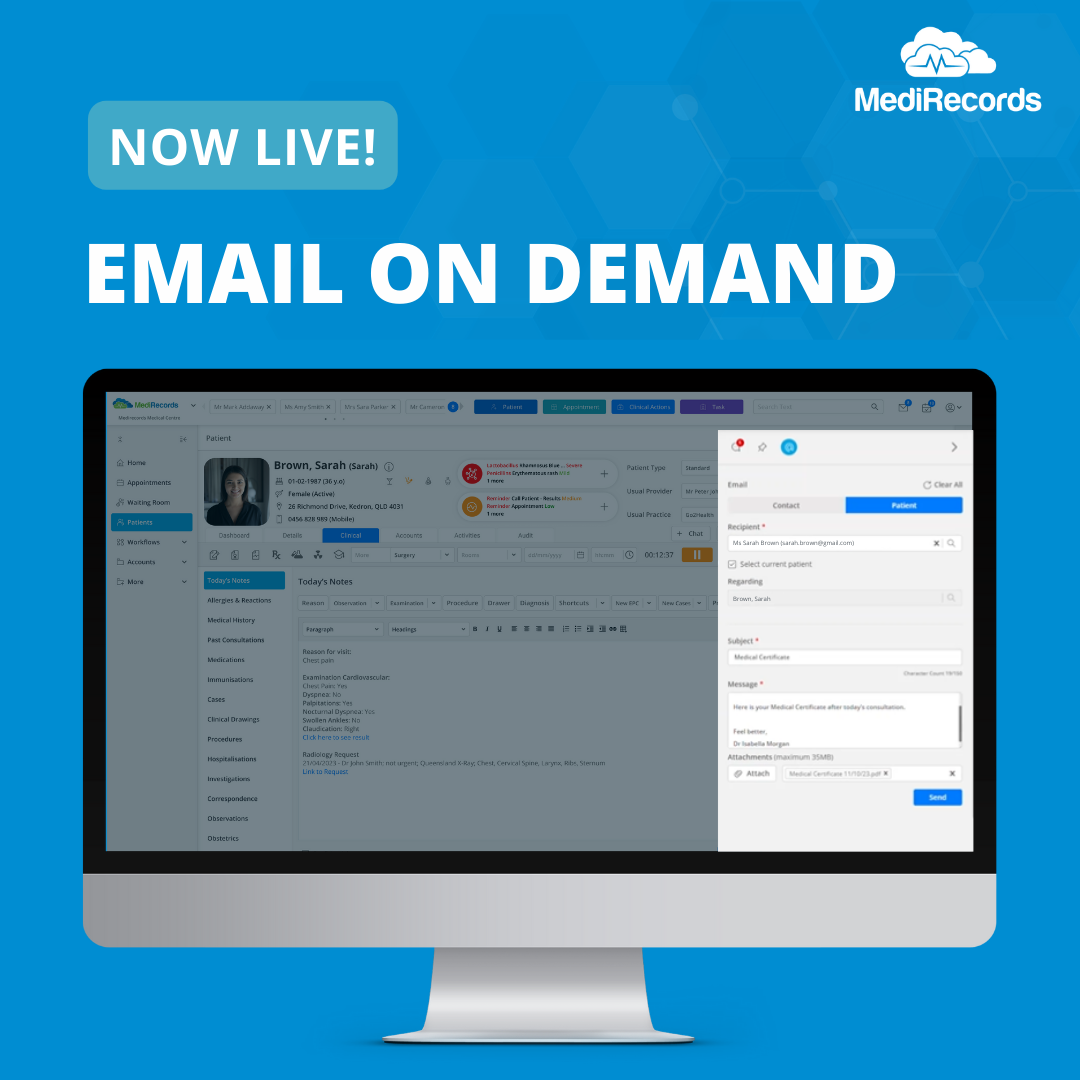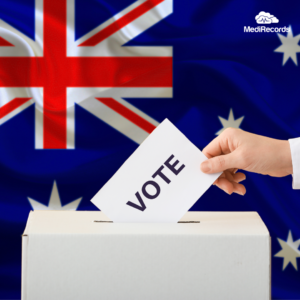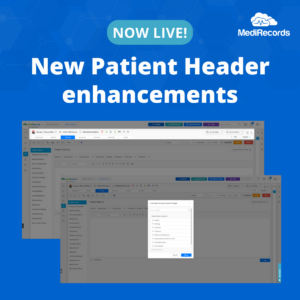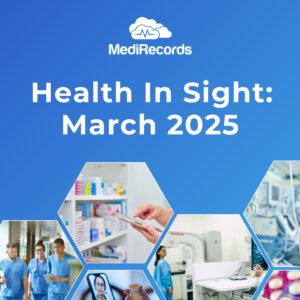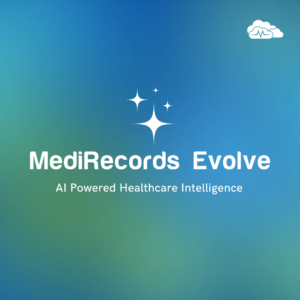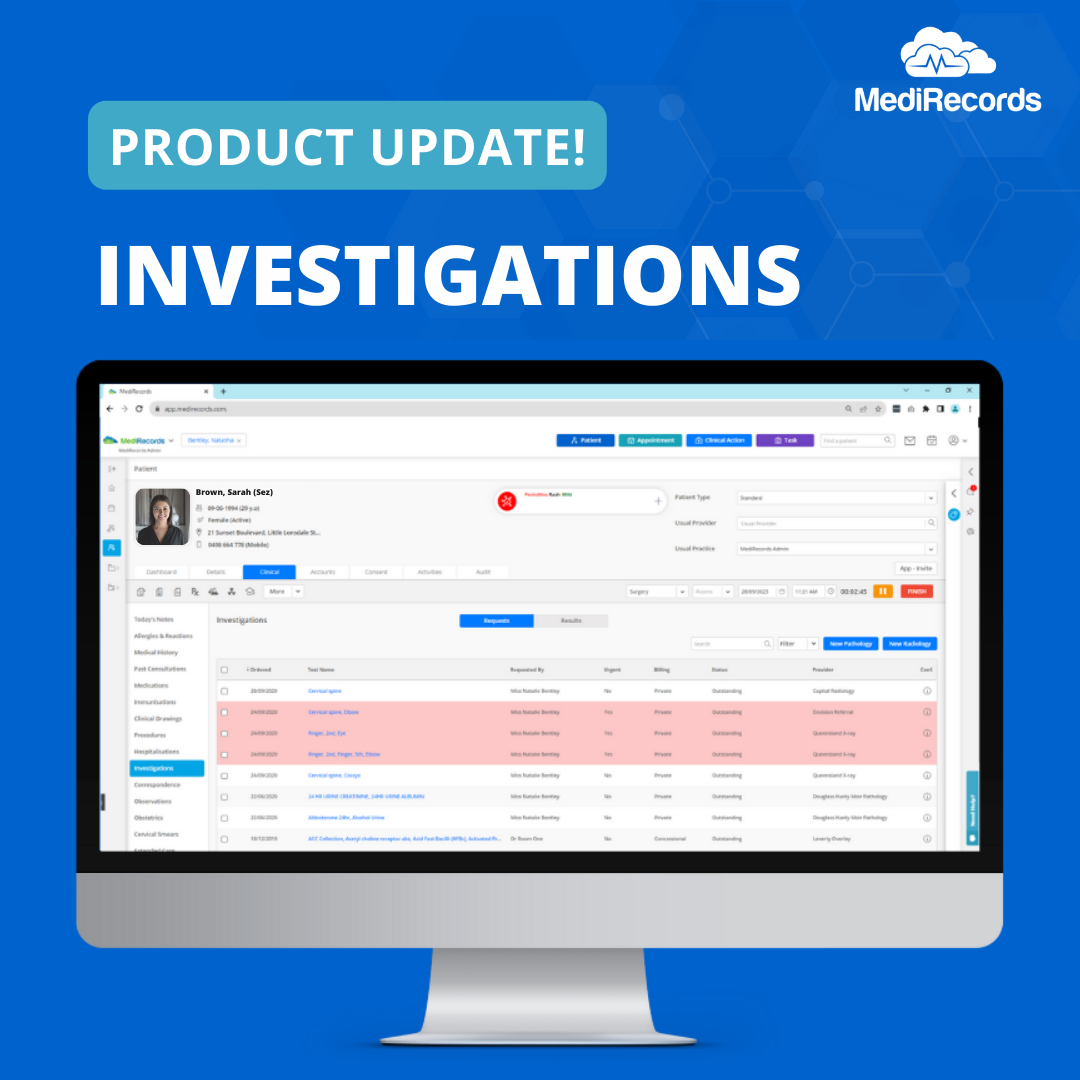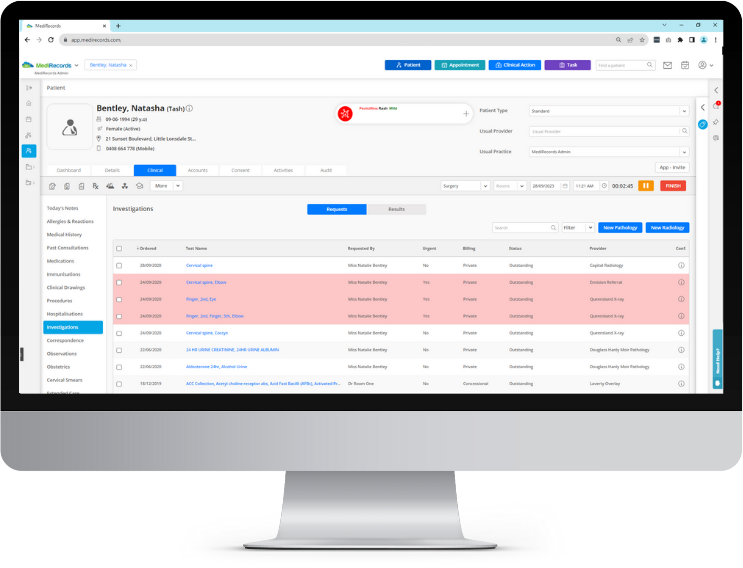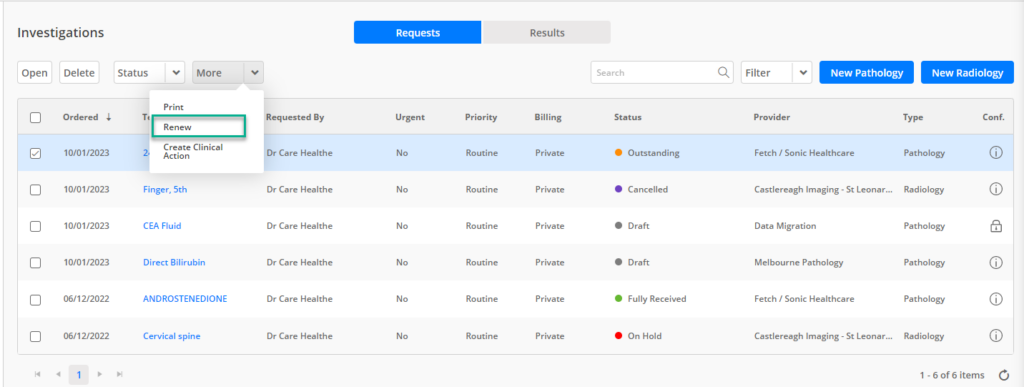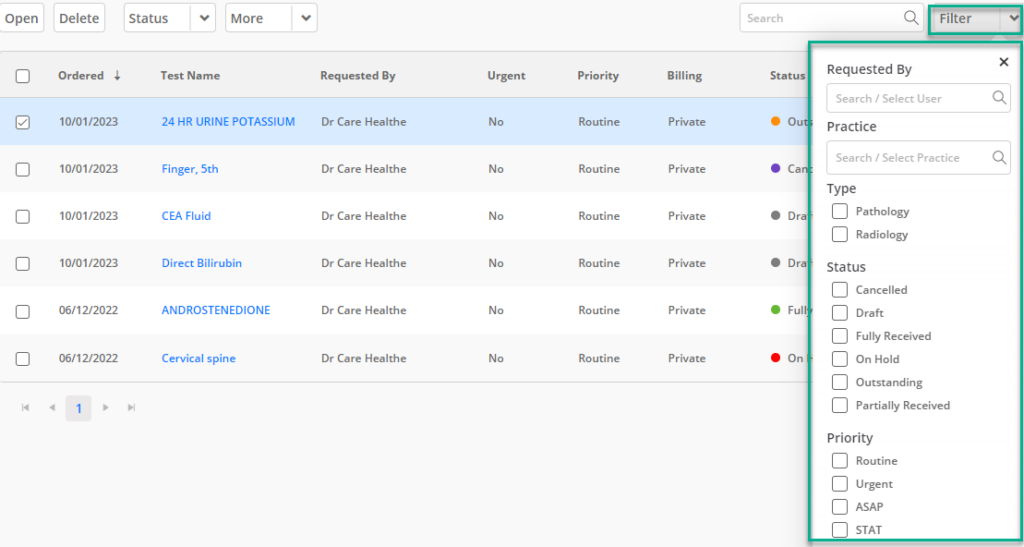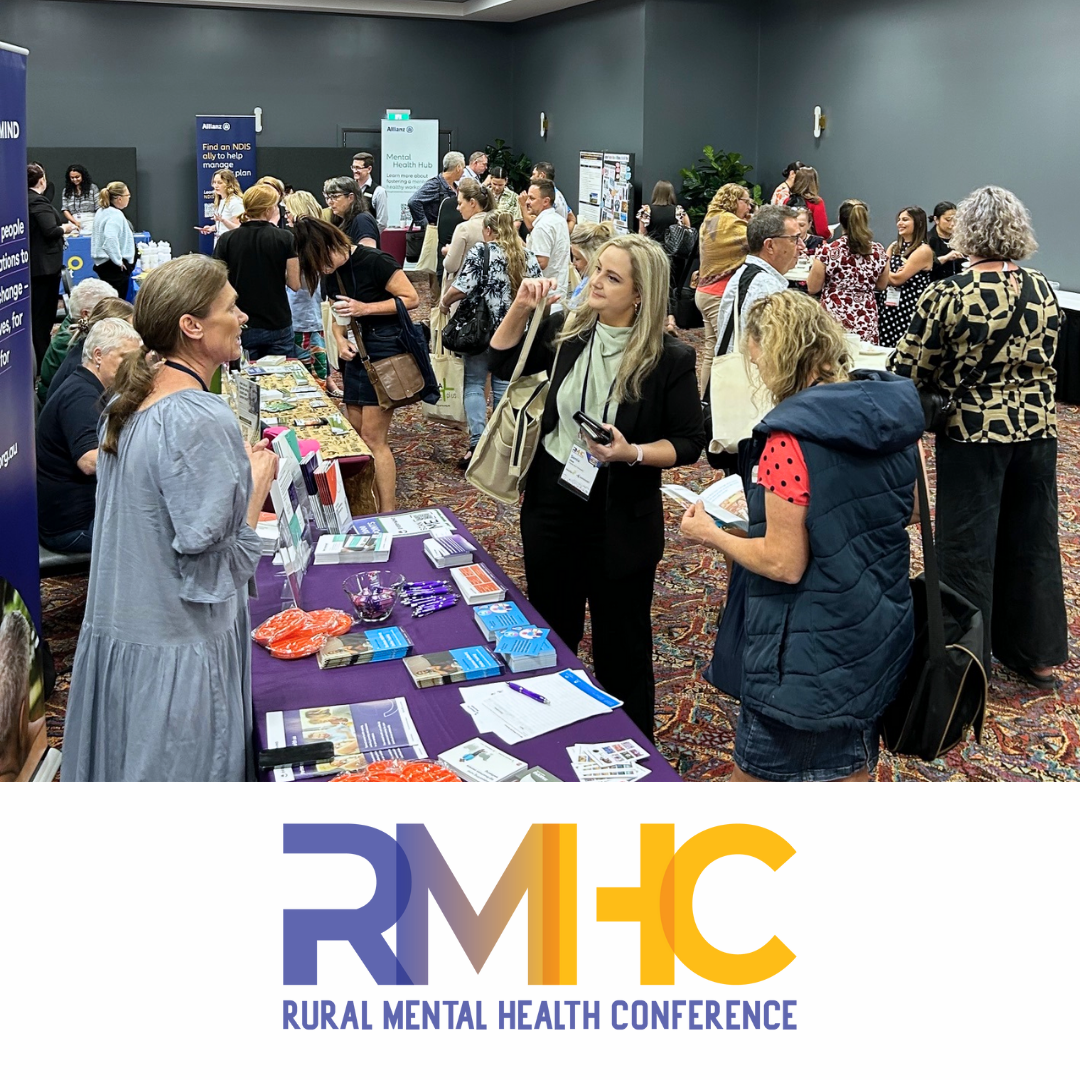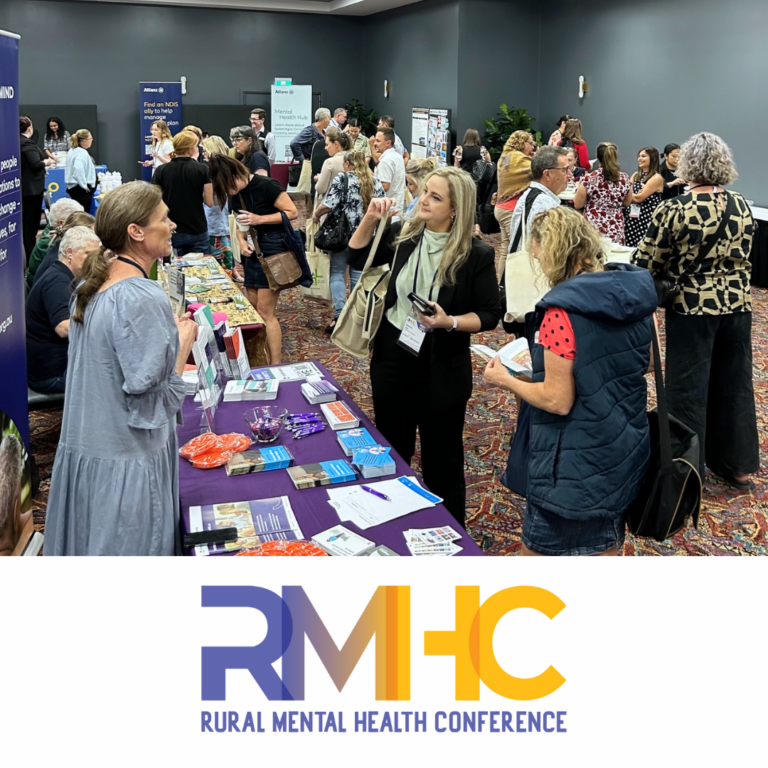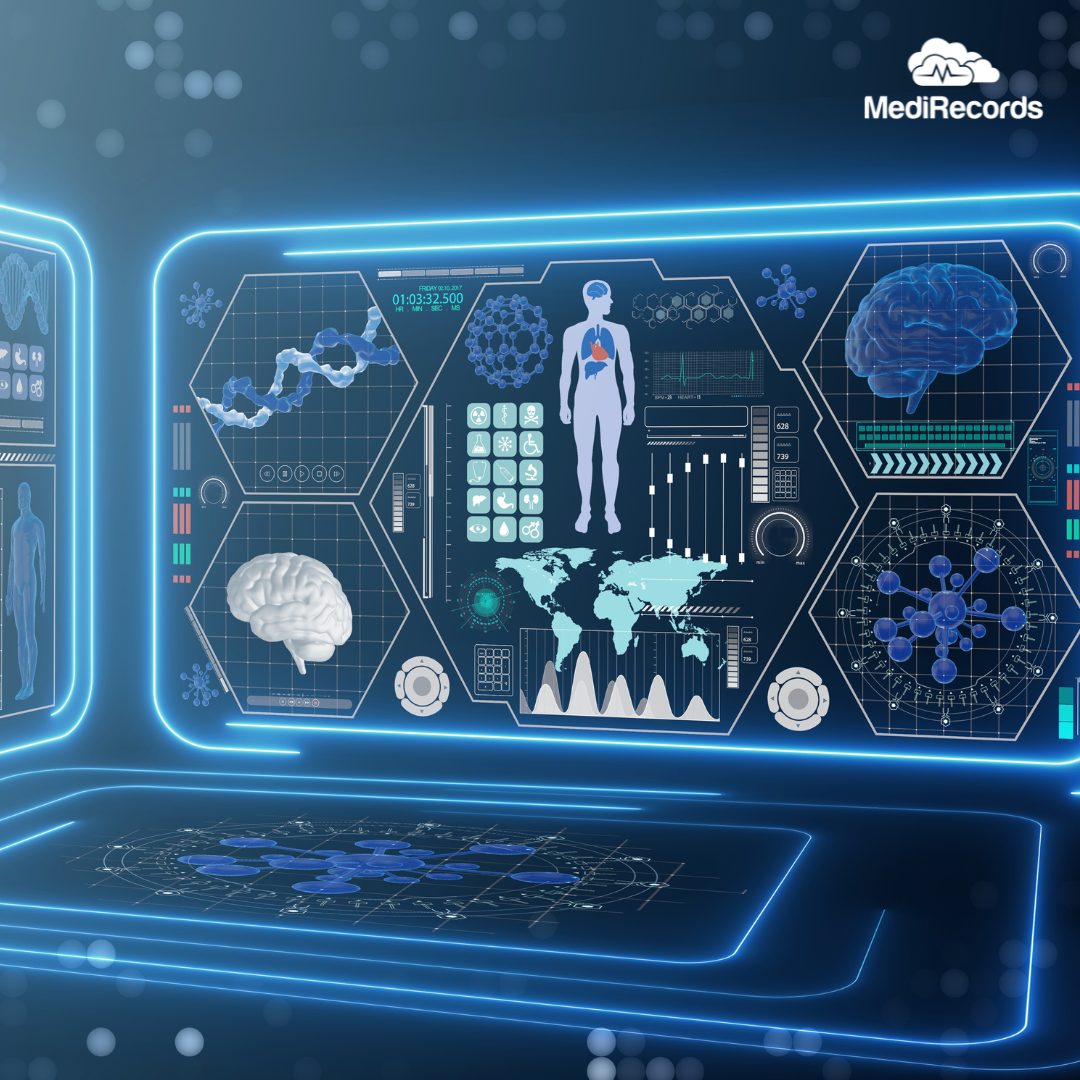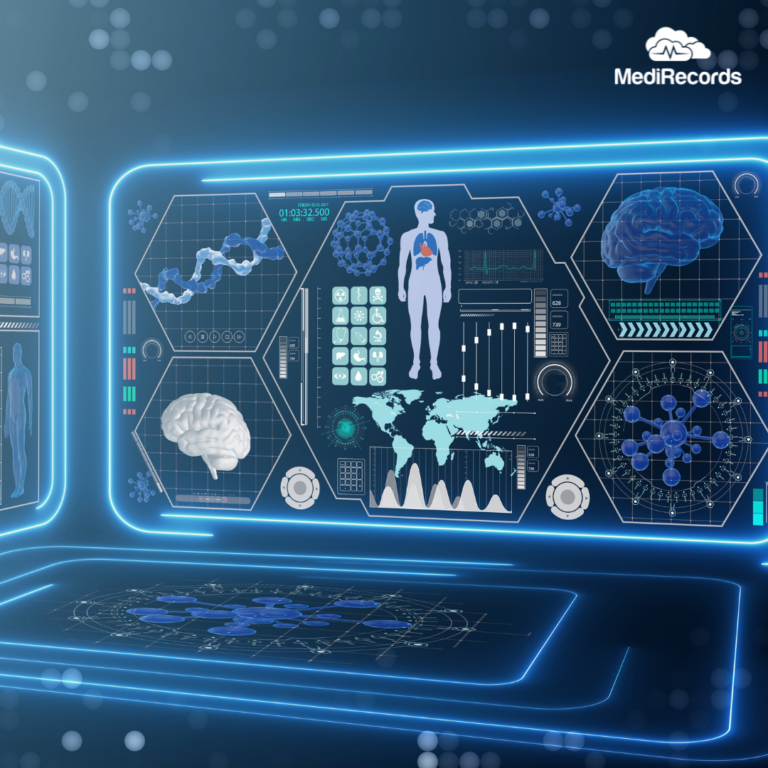November 30, 2023
Email on Demand is now live on MediRecords!
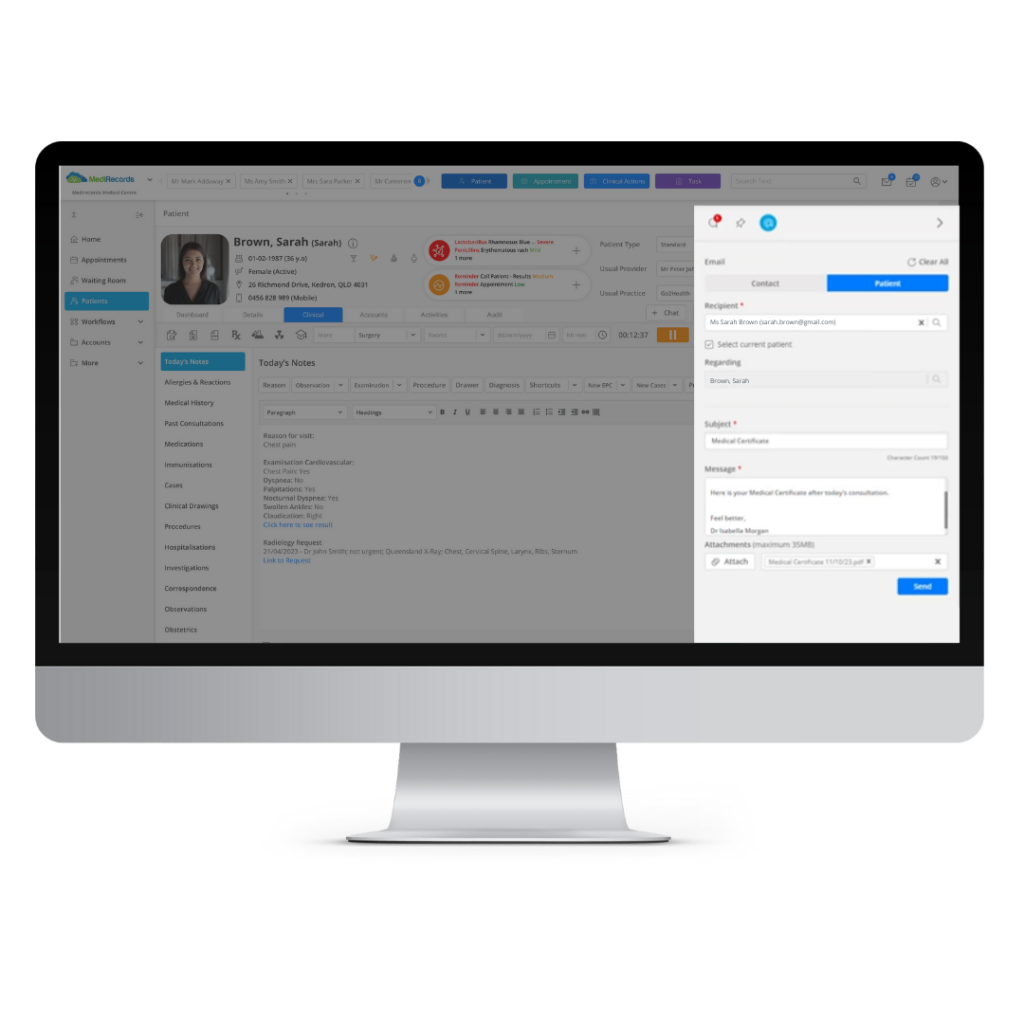
Enhance your communication workflow with Email on Demand –
MediRecords' latest feature!
We are excited to share that Email on Demand is now live on the MediRecords platform! This new feature allows our users to send emails directly from MediRecords, removing the need to download files or switch between applications. By using our new email solution, users can streamline their communications, save resources, and have more time for patient-focused care.
Users can now access Email on Demand from the Universal Communications Bar, which is located at the top right-hand corner of the MediRecords platform. When users click on the email icon, they will see a pop-up window where they can compose and send an email. Users can also attach documents from MediRecords files or from their local device.
When using Email on Demand within a patient record, users can simply tick the checkbox to Select Current Patient, and the Recipient and Regarding fields will be automatically filled with the applicable details.
Email on Demand is a useful feature that helps to optimise workflows and efficiency with benefits including:
- Emailing clinic rosters and staff updates to internal practice users
- Sending attachments to patients such as a Health Summary, Care Plan, prescriptions, medical certificates, and education resources.
- Sending multiple document attachments to external healthcare professionals, regarding a specific patient.
If you would like to read more on how to use Email on Demand, please visit the following articles from our Knowledge Base:
Interested in exploring Email on Demand further? Book a demo with our Sales team, and discover how Email on Demand can help to optimise your practice’s communications.
Frequently asked questions
Any document created as a New Letter or Imported into the Correspondence OUT grid will be available to be attached, provided that the letter status is Final. This means Investigation Requests, Invoices, Patient Education, and more, can be sent via email after being uploaded to the Patient’s Correspondence.
While you won’t be able to receive a direct reply into MediRecords, you can include Reply-to instructions in the body of your email. All emails will come from a clear no-reply email address with an embedded footer that also indicates the inability to receive replies.
Yes, you can send as many emails as you like, however you will be unable to include multiple recipients on one email at this stage.
To keep your email safe and secure, the recipient’s email address must be confirmed and saved within a Patient Record or Contact.
As with most email servers, a failure to deliver can take a long time and is not always immediately apparent. While you won’t be able to see a delivery status within MediRecords, if you’re concerned your email has not reached its destination, please speak to our Support team.
A sent email will be logged as a Task in the Activities screen, and within the Patient’s Activities tab. This entry will include comprehensive details of the email, including all recipient and patient information, and even whether a file was attached or not, to provide peace of mind that your email went to the right place, and that you didn’t forget to attach that document.
MediRecords utilises SMTP Port 587, as do many other major industry mail clients, such as Microsoft Outlook and Apple Mail. This is highly secure, encrypted and reliable, with additional layers of security compared to other ports.

